[ad_1]
Call It Love: Episodes 1-2
by Dramaddictally
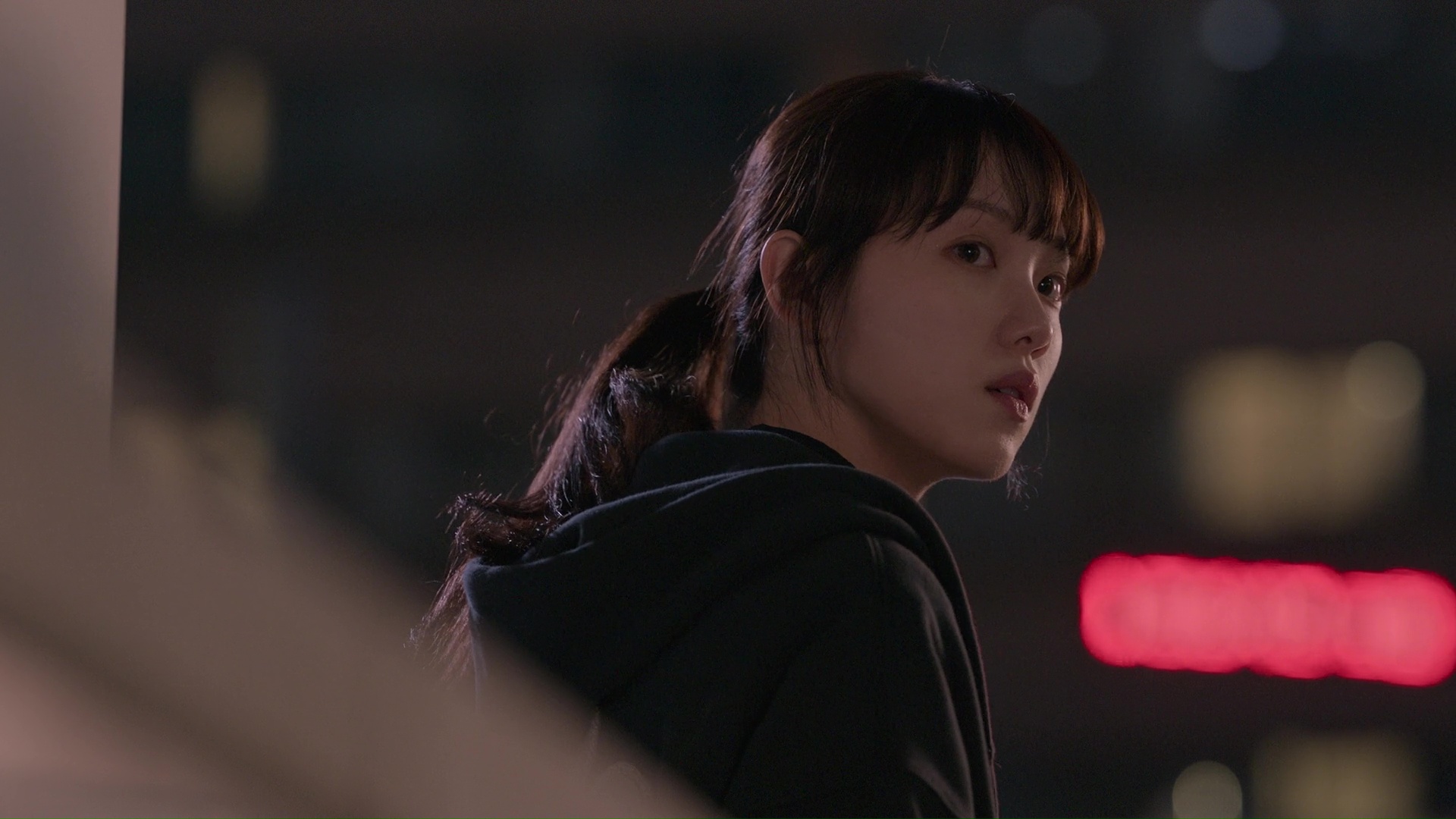
Call It Love is finally here after weeks of pretty-in-pink teasers, and I, for one, am calling it lovely. The premiere week is high on vengeance and low on romance but it’s already clear the seesaw will shift, lifting our leads up and out of their current gloom. It’s got an artsy feel, siblings at its center, and a tough-as-nails heroine that’s really not as tough as she looks. Yep, I’m already under its spell.
EPISODES 1-2
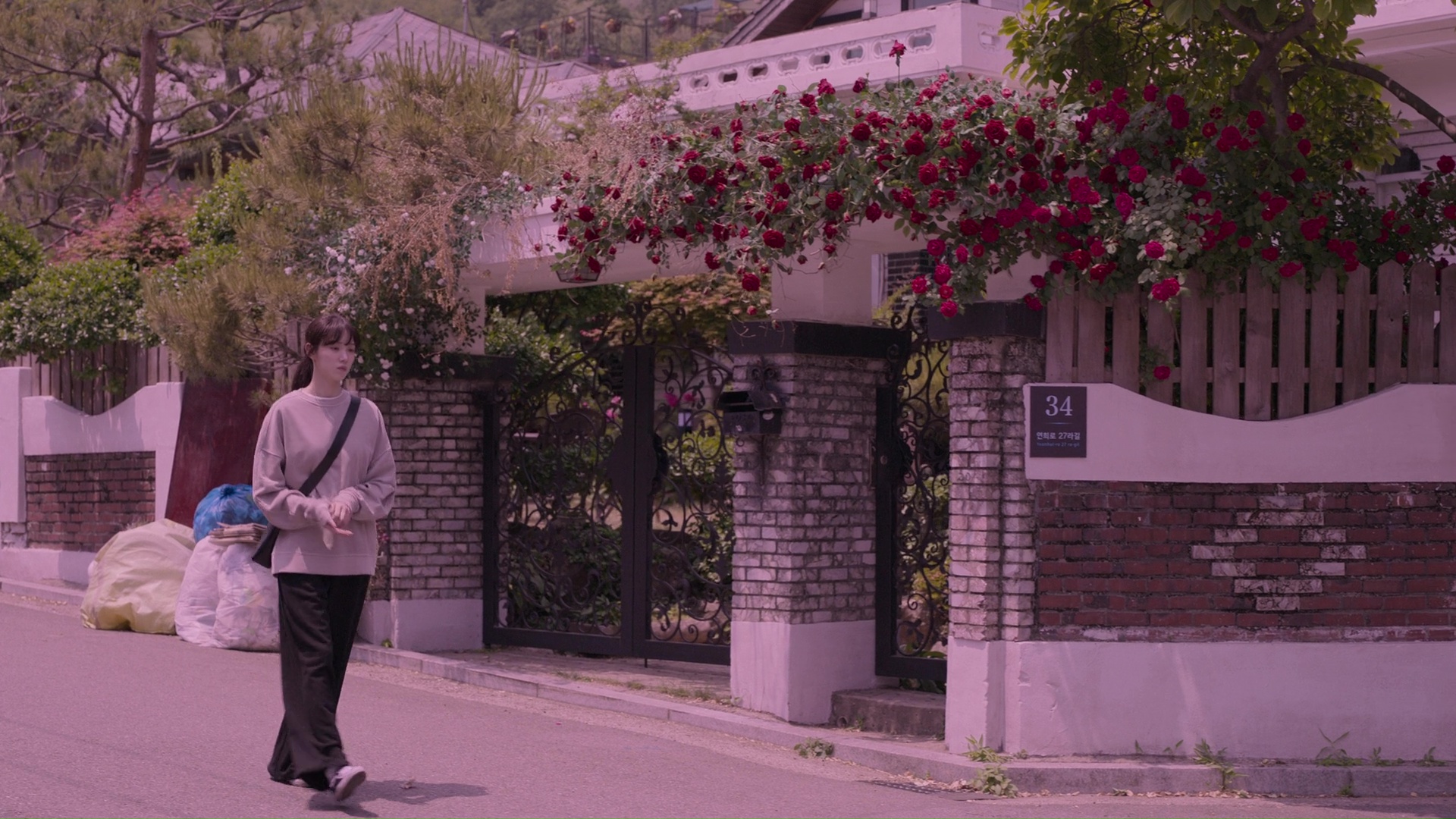
As with any revenge story, we first have to understand what went wrong in the past to be able to get behind the punishing intentions of our main character. In this first set of episodes, we get lots of exposition as the backstory is slowly revealed in pieces. (I’m going to lay it out all at once, though.)
To begin, we meet our heroine, SHIM WOO-JOO (Lee Sung-kyung), who’s hurt, angry, and doesn’t take nothin’ from nobody. She’s the middle of three adult siblings who live together in the house they grew up in, but are now parentless. Their mother died of an illness when Woo-joo was a senior in high school (causing her to bypass college and go straight into the workforce) and their father had abandoned the family for his mistress before that (taking with him all the family’s money).
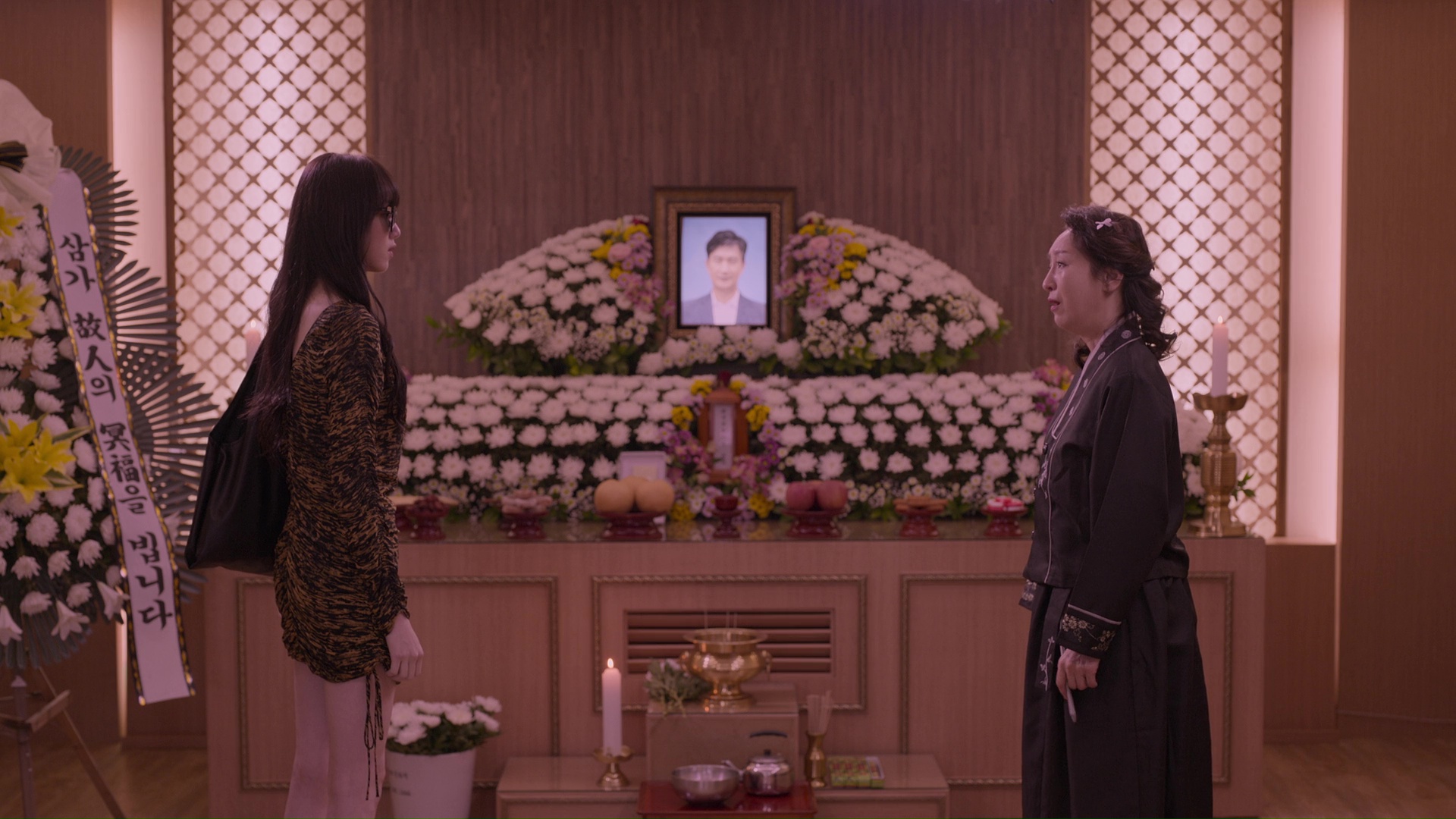
In our opening sequence, set in the present, Woo-joo learns of her father’s death and decides to go make a scene at the funeral service (which she wasn’t invited to). She shows up in a skin-tight dress and bright red pumps and loudly divulges the family’s dirty laundry, as she drinks soju and complains about the food.
The mourning widow (a.k.a. the woman Woo-joo’s dad left her mom for) doesn’t recognize Woo-joo at first, after fifteen years of not seeing each other. But Woo-joo makes her identity and her intentions known, saying revenge should be taken — even decades later — by humiliating the other person in any way possible.
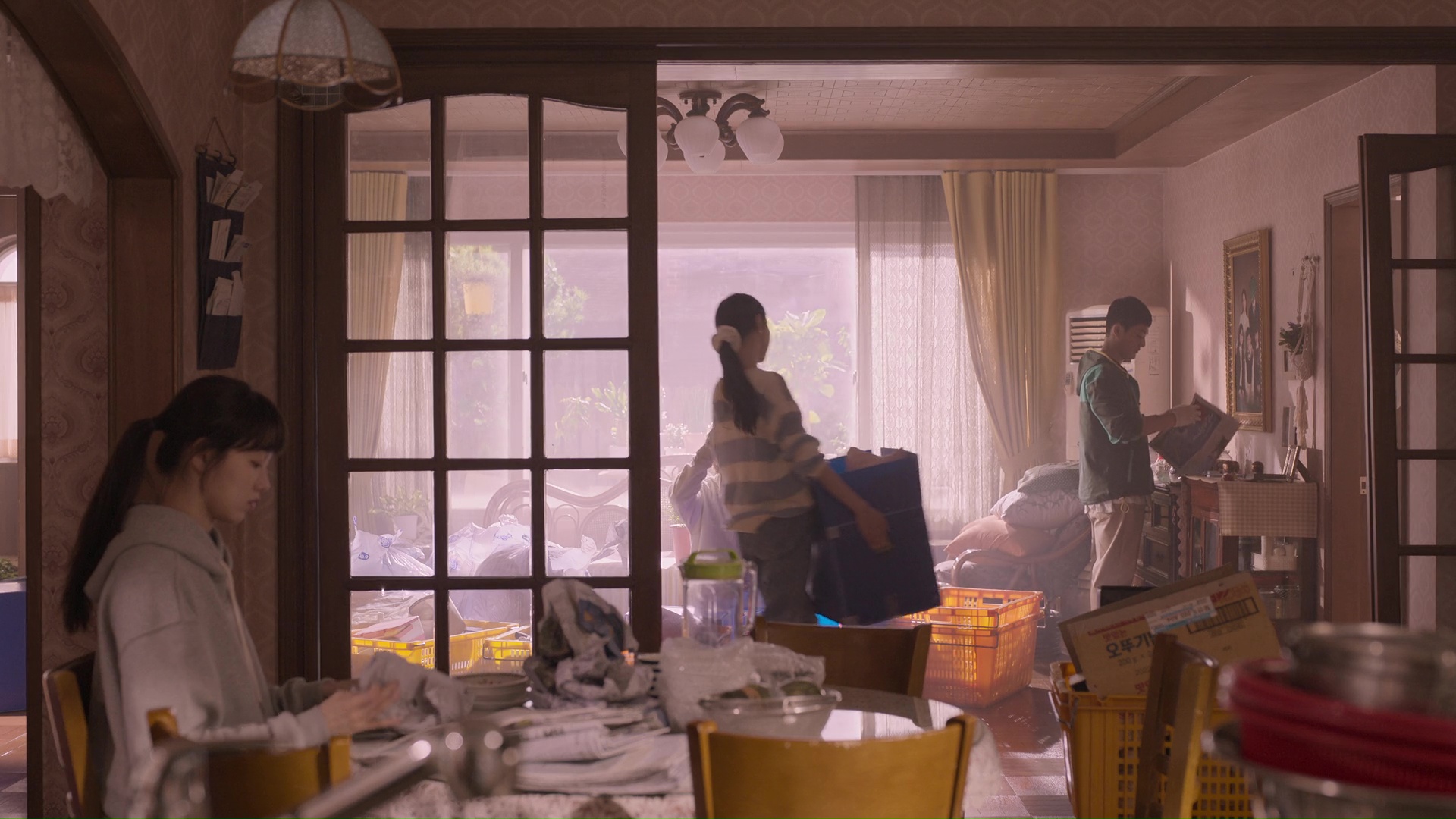
While Woo-joo is at the service, she overhears her estranged aunts talking about the fact that the widow, MA HEE-JA (Nam Ki-ae), has inherited the house that Woo-joo and her siblings live in (which legally still belonged to their father). Worse, Hee-ja has already sold it, and when Woo-joo confronts her, she says the kids have one week to move out. If Woo-joo was toying with revenge before, she’s serious about it now.
We see the three siblings, along with Woo-joo’s lifelong friend YOON JOON (hello Sung Joon), packing and boxing all their belongings. Joon is uncomfortable during the process, but the rest are methodic and unemotional as they go along. I get the impression these three are used to loss and have disconnected from their feelings. They move into Joon’s house with him, seemingly because they have nowhere to go, but we later learn Woo-joo has an ulterior motive.
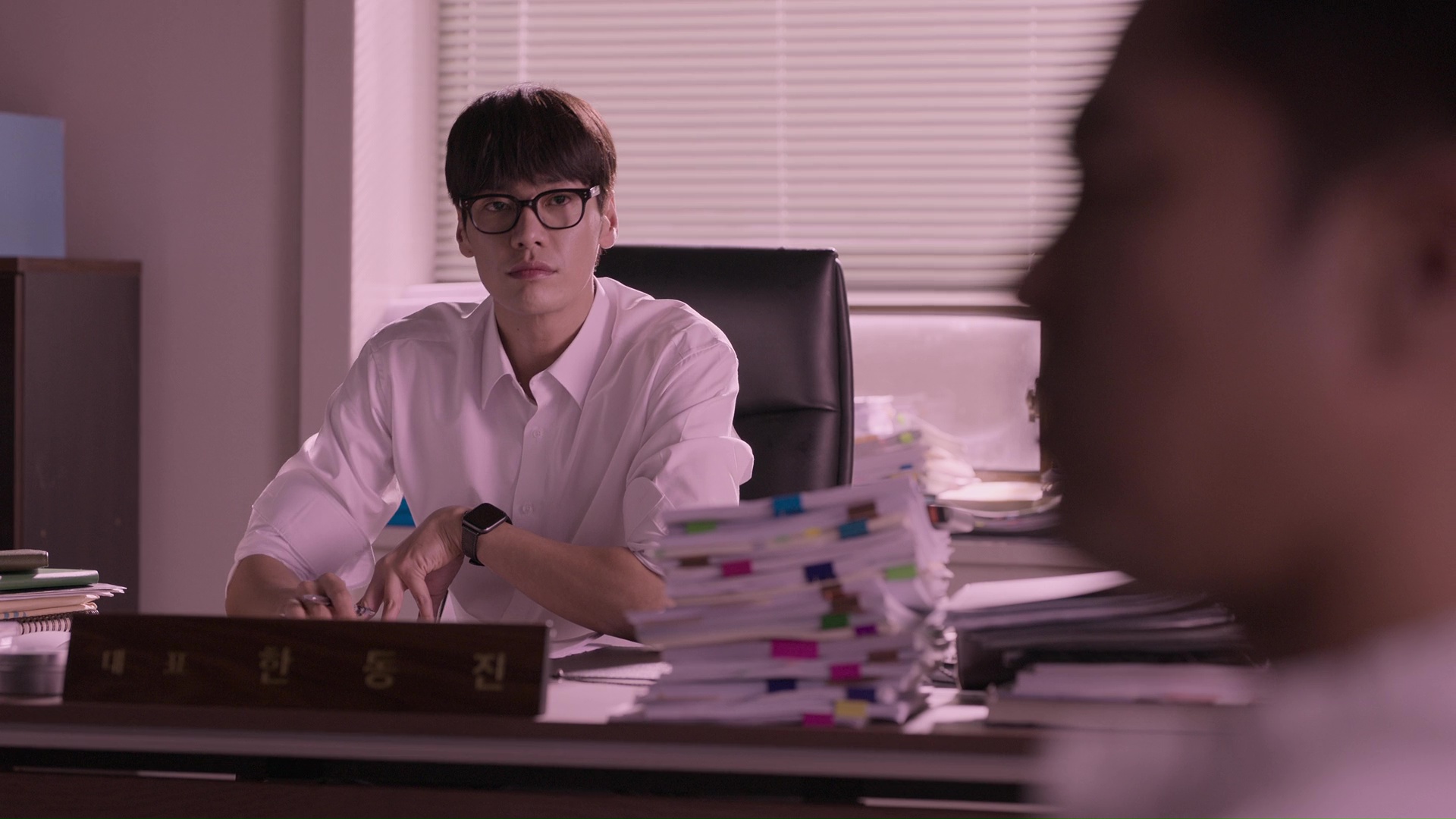
The name of that motive is HAN DONG-JIN (Kim Young-kwang) — who lives in the same neighborhood as Joon. We meet him as the CEO of a company that organizes trade fairs. Due to some scandalous behavior from a former business partner, his company, Best Fairs, is on the rocks. In order to stay afloat, he accepts a large sum of money from his mother — who is none other than Hee-ja.
There are a couple of things to note here. First, Dong-jin purposefully does not ask where the money came from. We’re given the sense that he and Hee-ja have a complicated relationship and that she wasn’t around much as he was growing up (she says she got married a lot, and even though she was with Woo-joo’s dad, Dong-jin never knew him too well). Since Dong-jin needs to accept the money his mother offers, he doesn’t want to know anything about it that might make him feel too guilty to take it.
Second, we are led to believe — along with Woo-joo — that the money for Dong-jin came from the sale of Woo-joo’s house. (There’s a little shadiness around this right now, though, so we’ll have to wait to find out what’s going on.) The thing is, Woo-joo believes her house was sold to invest in Dong-jin — who she sees as a spoiled guy, living in comfort, who never had to struggle for anything. And so, she turns her vengeful plan toward him, believing he’s just like his mother.
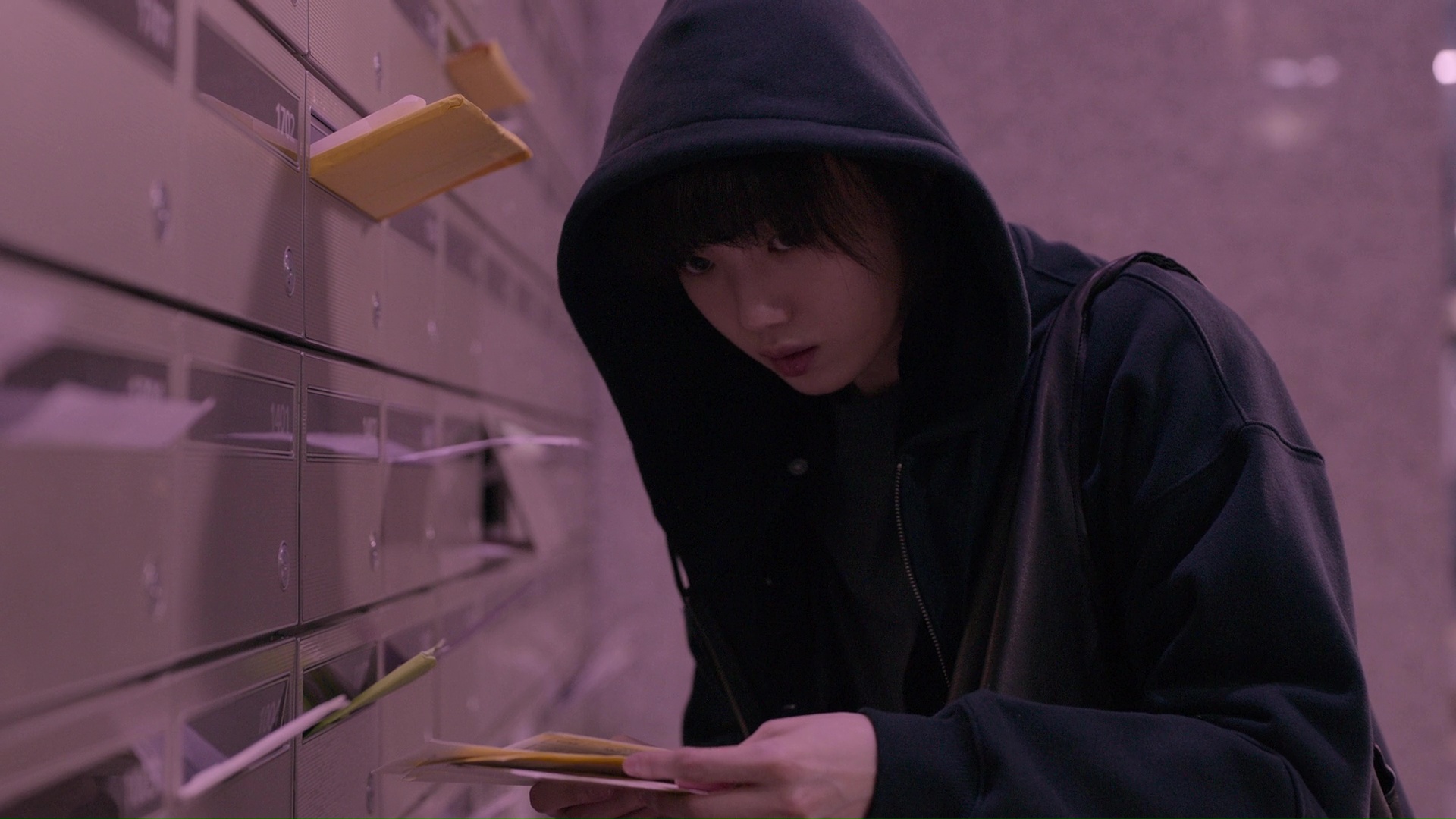
To enact this plan, Woo-joo quits her job and gets hired as a part-time office assistant at Best Fair. She tries to start sneaking around and collecting possibly valuable data to use against our male lead, but she’s just not good at it. On one occasion, she follows Dong-jin to his apartment building and starts going through mailboxes to find out which apartment is his. He catches her in the act — because he saw her following him (and so did the convenience store worker where he stopped to eat. The girl might have heart but she needs some training in vigilantism).
Dong-jin is pretty calm about the whole thing, though. He tells her his apartment number and asks why she followed him. She’s super vague, just saying she has a lot of interest in him (clarifying that it’s not in a romantic way). It’s a strange scene that lacks emotional intensity on either side, but gives us clues that (like Woo-joo) Dong-jin is a loner type and is also holding onto some secrets.
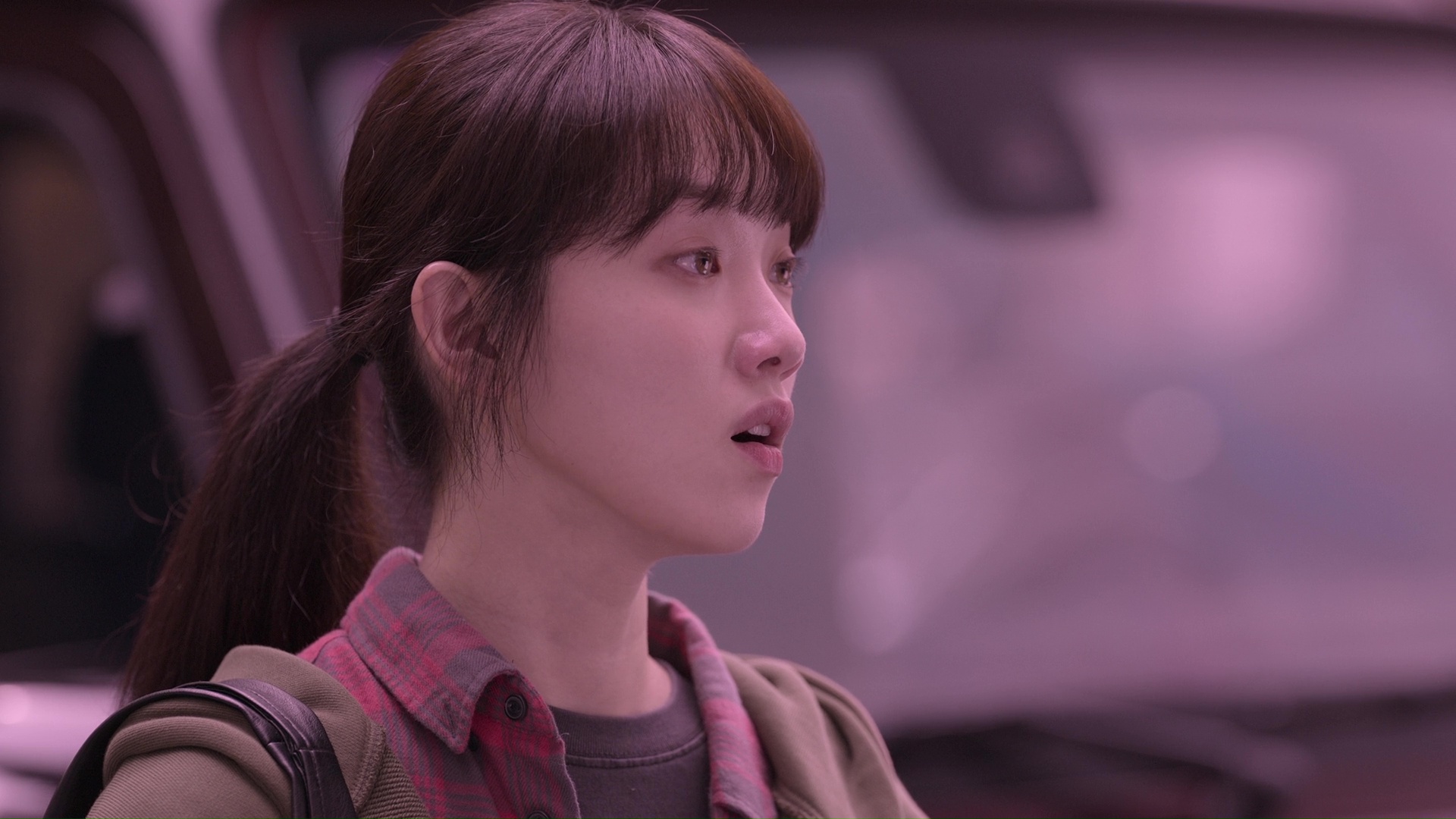
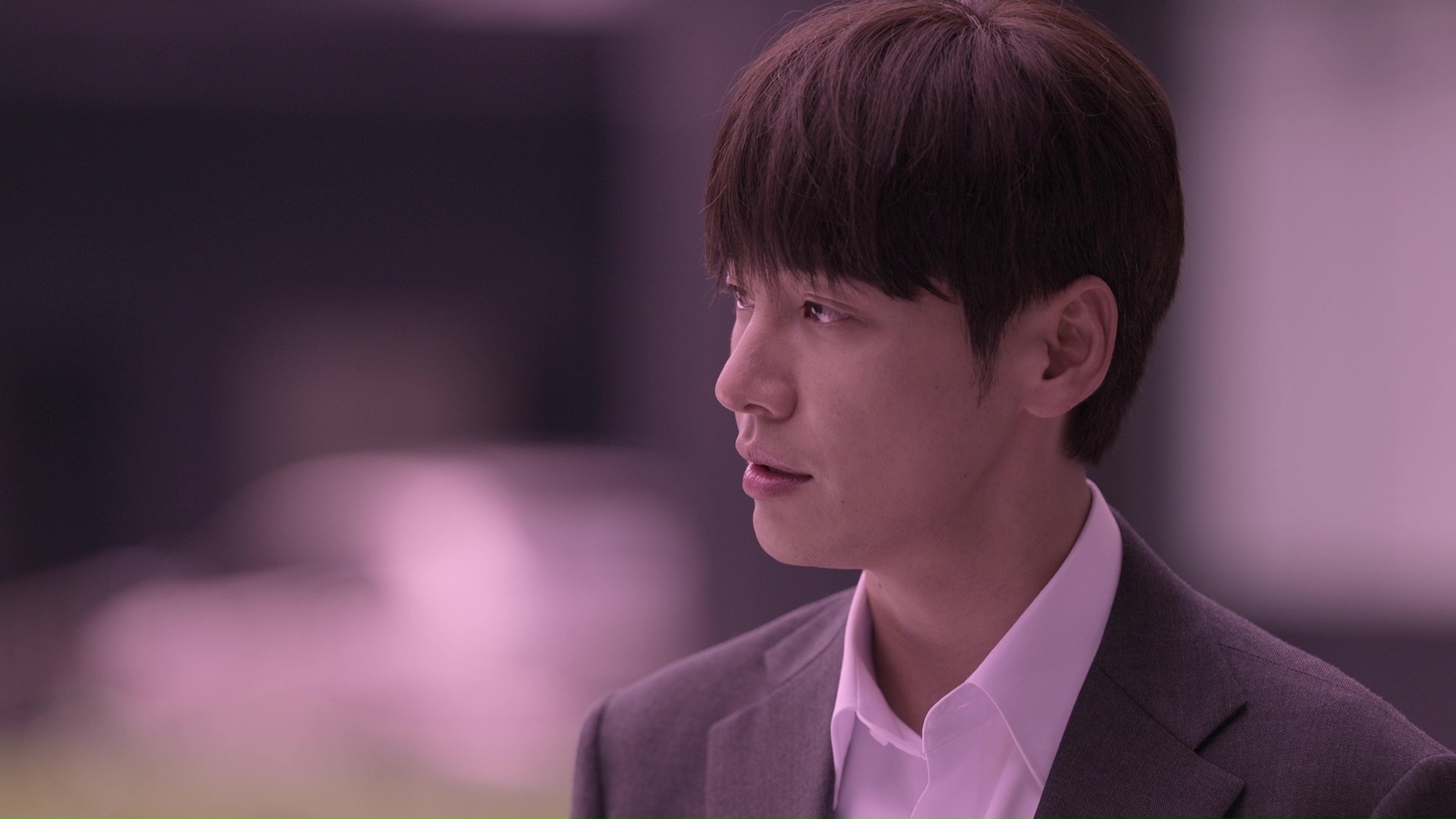
The next major encounter between the two happens when Woo-joo is accused of having infiltrated the company to spy. It just so happens that on the night a dubious email is sent from an office laptop, Woo-joo is at the office way after hours (copying files that she might need to use against the CEO). But she didn’t send the email and she’s not a spy. As she says, she’s not the most upright person in the world but she can’t be bought off that easily.
Dong-jin isn’t sure what to believe at first. When he questions her about why she was at the office, and asks her to explain why she followed him home that night, she’s too angry to answer. Instead, she starts insulting him about his comfortable life, and says he’s taking the easy way by blaming her, rather than considering one of his long-time employees may have turned on him. It’s clear she’s hurt, but her hurt always pours out as antagonism.
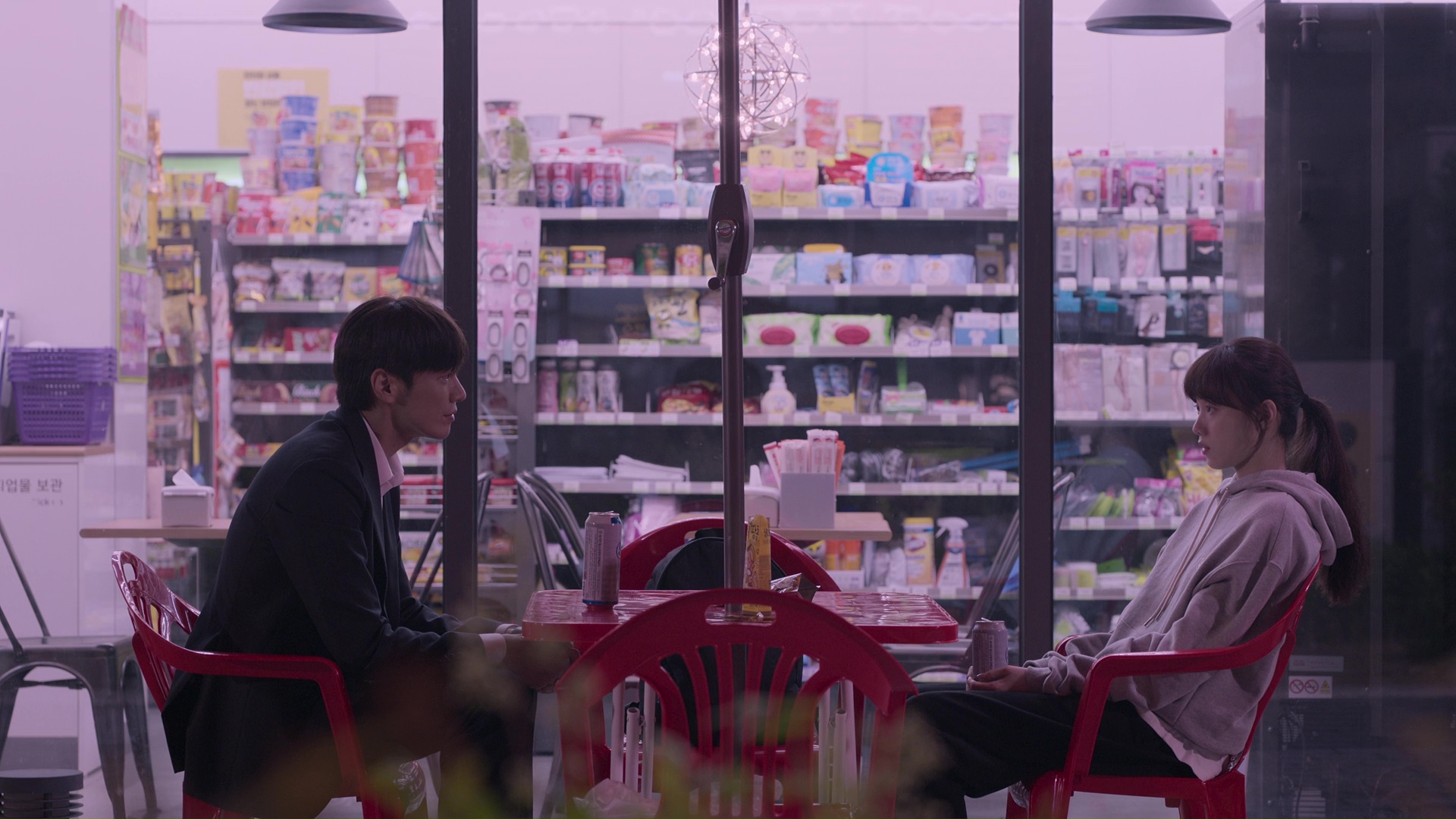
And what we see in this scene is that he’s hurt too. The things she’s saying are getting under his skin because they’re true — which, in turn, makes him just as angry as she is. He fires her on the spot, but later learns that one of his long-time employees was in fact the culprit.
Dong-jin feels bad about firing Woo-joo and asks her to meet up with him. They sit outside a convenience store and he says he wants to hire her back. As they’re talking, his turncoat employee shows up and begins to charge at Dong-jin as if he’s about to hit him. Woo-joo sees that Dong-jin is not going to defend himself — he closes his eyes and tenses for impact. So, she steps in and pushes the employee to the ground before he gets in a swing. Dong-jin stares at Woo-joo in awe as we end our episodes for the week.
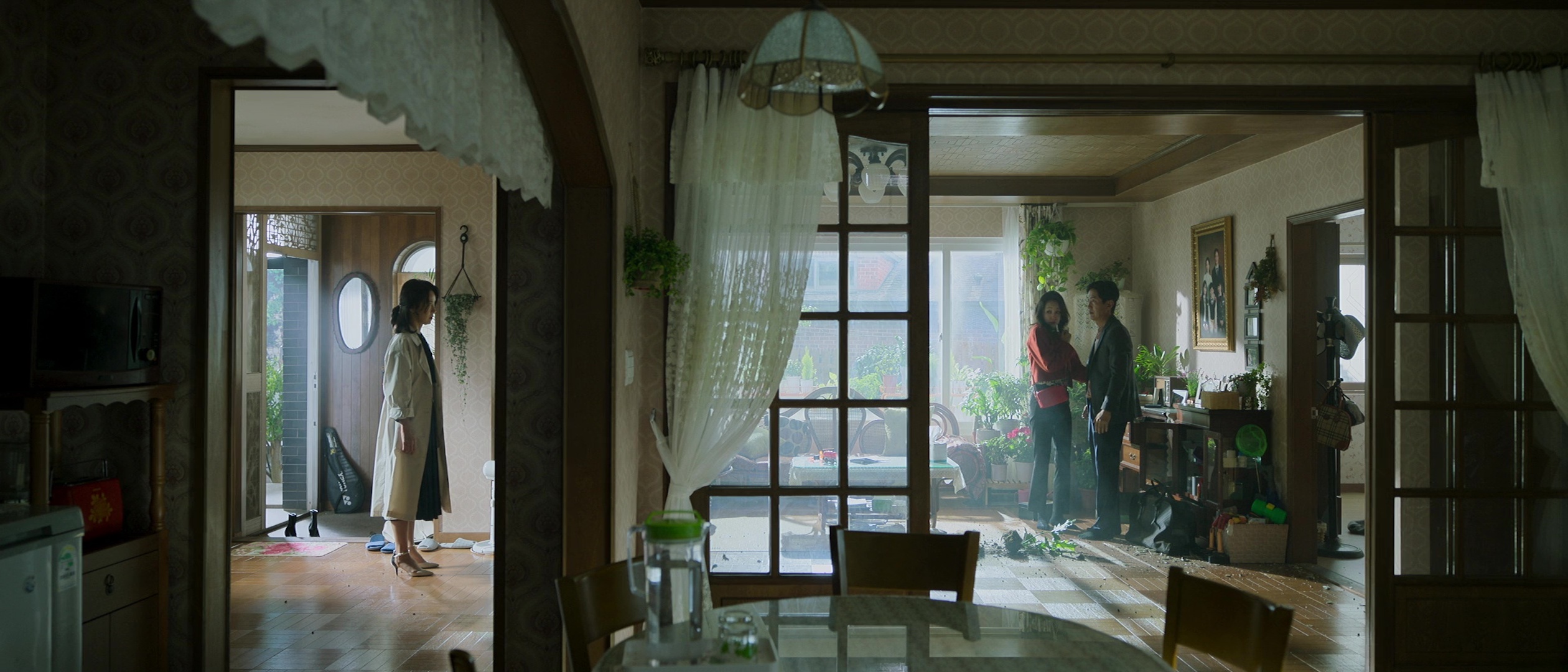
There are a few things I’m really liking about this show. One of them is the aesthetic and directorial choices. As mentioned in our Premiere Watch post for Call It Love, PD Lee Kwang-young intended to capture the tone of the story by coating the images with dusky light (“a reddish sunset glow”). This works for me on a couple of levels.
For one, this is shot beautifully. It’s got an architectural feel that embraces clean lines and a modernist aesthetic. But that also means it’s got some sharp edges, which are softened by the color choice. These two things together — the framing and the cherry blossom hue — make for a pretty combination.
The other reason it works for me is more symbolic. If the aim of the palette is to express emotion (as the PD suggests), it’s interesting to note that the flashback scenes are hued in blue and green — cool colors — rather than the warm tint that covers the present. It’s like being taken back to a time before fiery tempers and hot emotions were the basis for our characters’ actions. (This also makes me wonder if it will be toned down when they start to heal.)

And that leads to the second thing I’m really liking in this drama, which are the emotions. So far, we’ve seen Woo-joo has complex feelings beneath her anger. She cries at her father’s funeral but berates herself for it. Her eyes are wet when Dong-jin is blaming her for something she didn’t do. She uses anger to deal with the world rather than feel her pain. It’s a nice, nuanced touch.
It’s also in contrast to her older sister, SHIM HYE-SUNG (Kim Ye-won). We get to know Hye-sung when a woman comes to visit her at work and accuses her of dating the woman’s boyfriend. Hye-sung denies it — because she doesn’t know the guy she’s seeing has a girlfriend. When she realizes it’s true (the guy lives with this other woman, whom he’s been with for ten years), she’s humiliated. She cries (in front of everyone she works with) and promises to never see him again. Then she empathizes with the woman, saying she doesn’t know how he could do that to her.
The scene conveys Hye-sung’s recurring problems picking boyfriends, which we’ve already heard about from her friend. And it tells us something about how she handled her parents’ breakup — she dates around (always choosing badly), and now, the fact that she’s on the cheating side (her father’s side), shames her. Woo-joo, we’re told, is the opposite: she doesn’t date at all because she thinks all men will be like their dad.
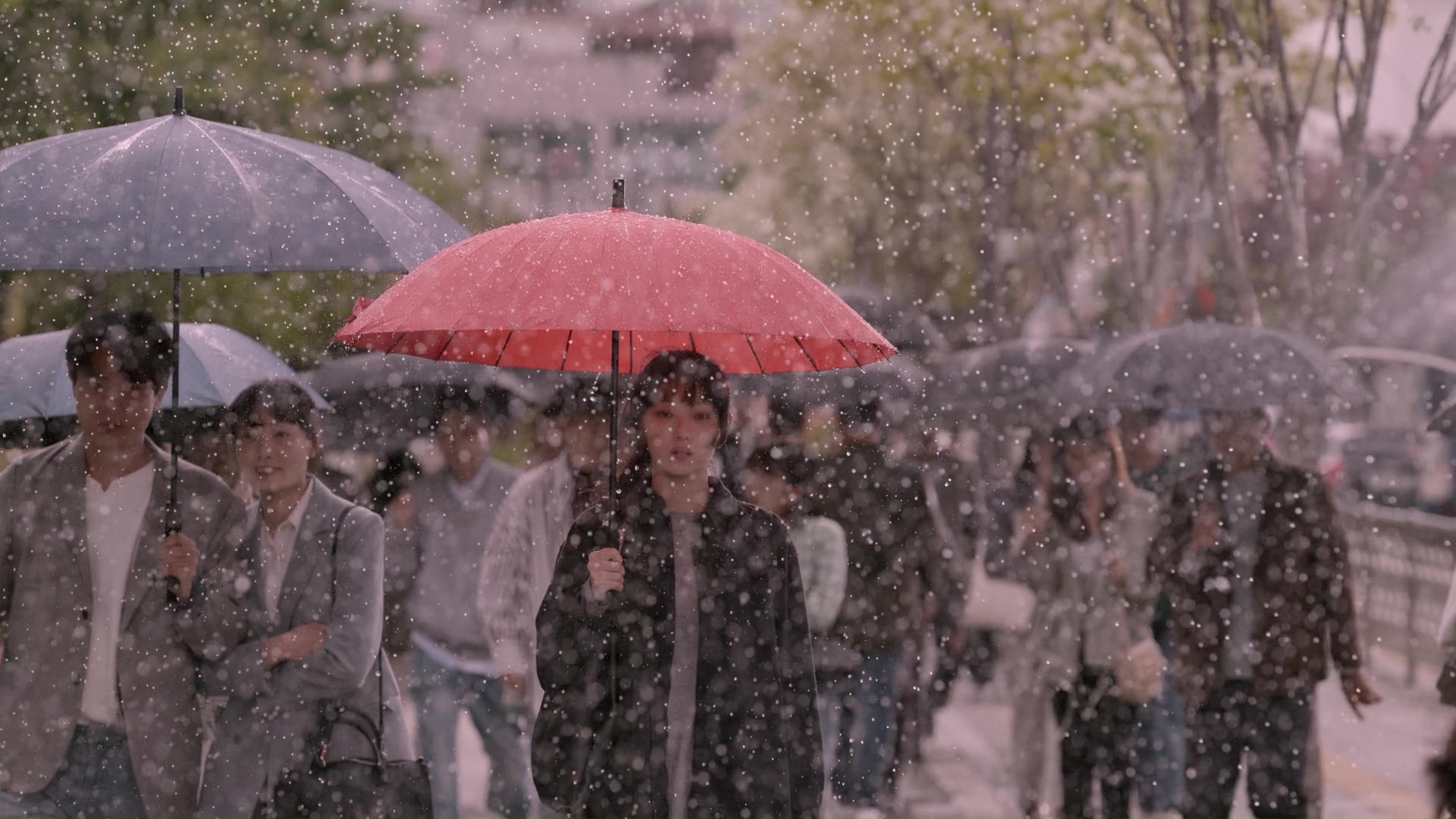
While I feel like the drama falls a little flat on the revenge plot side, I’m hoping it’s because we won’t stay here too long. Woo-joo is highly moralistic — calculating in her moves, not fly-off-the-handle crazy — and I feel like the drama might use that to have her change her mind about the revenge sooner than later.
At the heart, we’ve got two lonely leads, bottled with emotions, just waiting for someone to come along and help them open up. Even if it sometimes feels a little thin on story and overstuffed with melo, I’m ready to tag along on this journey and enjoy the purple-sky ride.
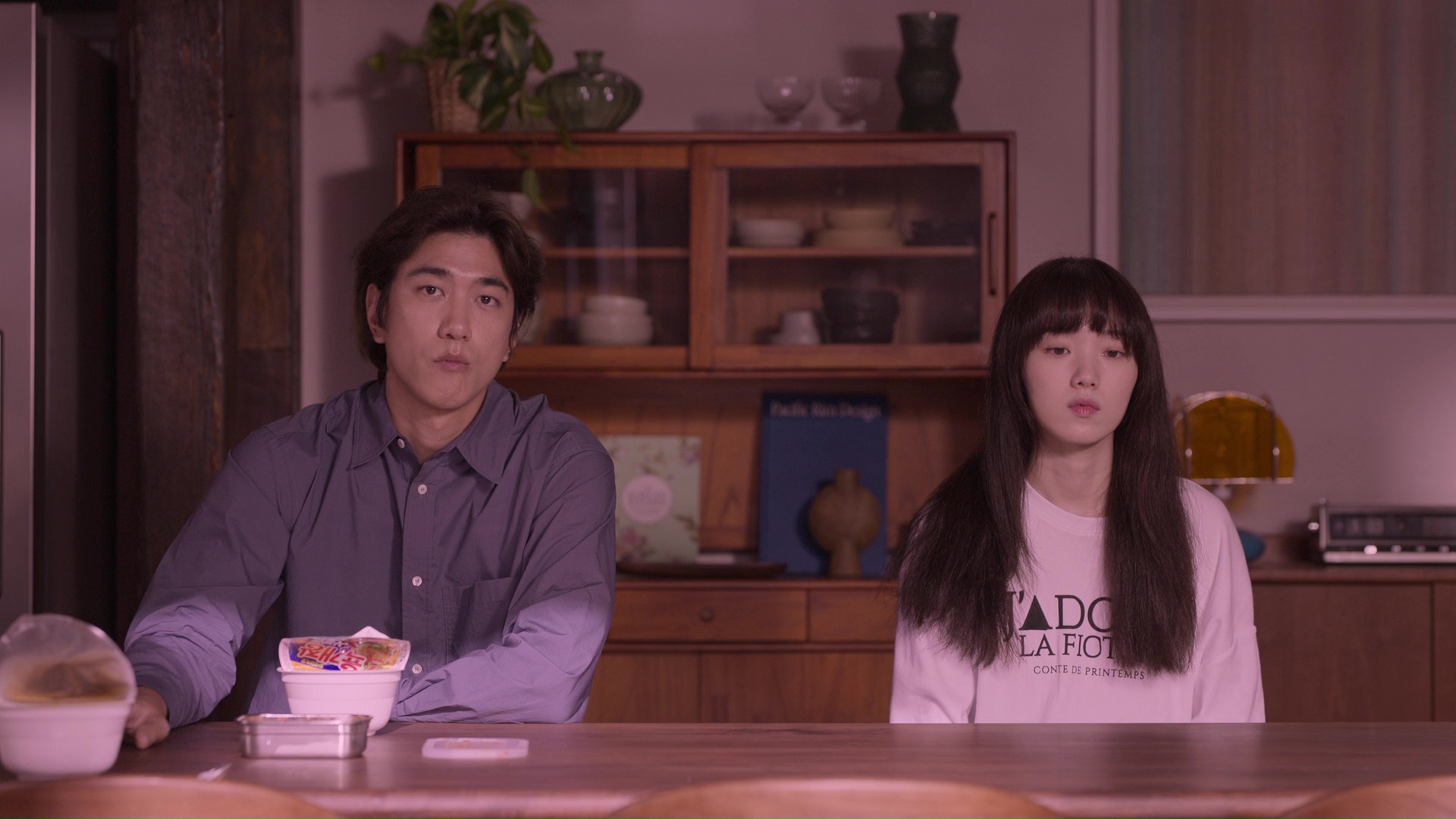
RELATED POSTS
[ad_2]
Source link

